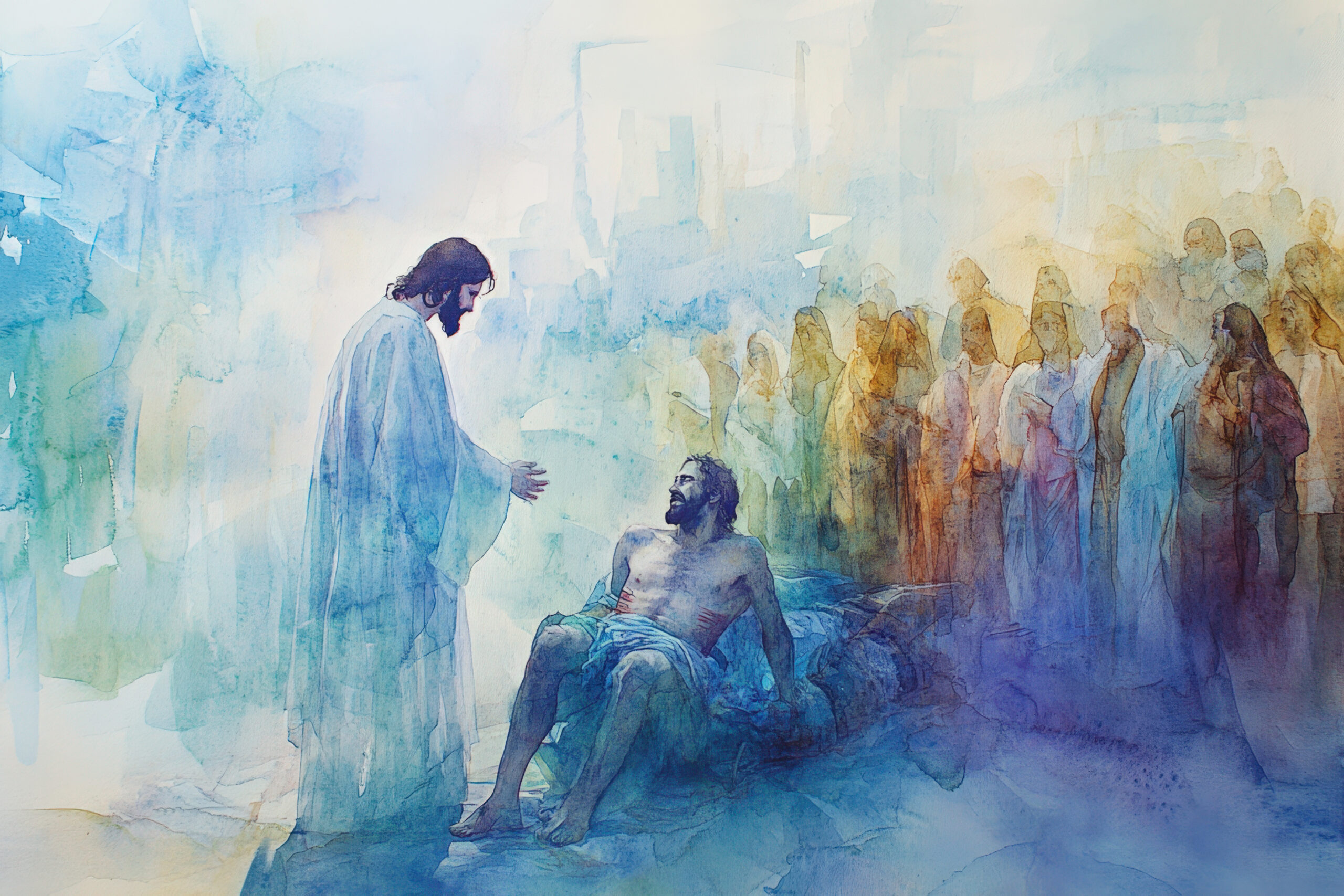“Son, your sins are forgiven.” -Mark 2:5
Capernaum is located on the Sea of Galilee. It is a small village that is often referred to as the “Town of Jesus.” This small community is where Jesus would base much of his ministry. Jesus would recruit many of his disciples around Capernaum. He would also perform many miracles in this small fishing community.
The Gospel of Mark opens with several scenes in the town of Capernaum. In almost every one of these moments, Jesus is asked to perform a miracle. Through each of these stories, Jesus demonstrates his power and authority. Starting in chapter one, Jesus drives out an impure spirit from a man who desperately wants to find healing and peace. Jesus then heals Simon’s mother-in-law, who had been sick in bed. When word gets out about his ability to heal, it is written that “The whole town gathered at the door, and Jesus healed many who had various diseases.” (1:33-34) Jesus would heal a man with leprosy and soon a man who was paralyzed.
There is great power in Jesus to heal and make whole. The people were excited and wanted to be close to Jesus. However, at the end of this long list of miracles in the first two chapters of Mark, Jesus would offer the gift of healing to a paralyzed man. He would tell him, “Get up, take your mat and go home.” (2:11) This should have been a great moment of celebration, but something happened that would change how the people talked about Jesus.
When Jesus was first asked to heal the paralyzed man, Jesus would say, “Son, your sins are forgiven.” This was shocking, and the people began to wonder, “Why does this fellow talk like that?” (2:7) Jesus knew they were struggling with his proclamation of forgiveness, so he asked the question, “Which is easier: to say to this paralyzed man, ‘Your sins are forgiven,’ or to say, ‘get up, take your mat and walk’?
I believe the people were wrestling with two things. First, they had been taught that the forgiveness of sins came from God, as the people offered sacrifices in the temple. This bold statement of Jesus was far beyond their usual practice of faith. Secondly, they believed their eyes when they saw people healed, but forgiveness is an internal work of God. Although they heard Jesus proclaim forgiveness, they wondered if it was true.
Which is harder? Forgiveness! This is the great struggle of our faith. Can God forgive a person like me? Would God forgive the people amongst us we believe to be the vilest? This is the work that heals our souls and frees us for a life of joy and peace. When Jesus came to this world, He healed the sick, made the blind see, and offered forgiveness to all.
At the end of Mark chapter two, Jesus is found eating with “sinners.” In fact, he invites one of these, a tax collector named Levi, to be His disciple. At the conclusion of this dinner, Jesus says, “It is not the healthy who need a doctor, but the sick. I have not come to call the righteous, but sinners. (2:17)
The work of Jesus is to heal our souls. He takes what is broken and makes it whole again. The people in the city of Capernaum saw this over and over. This is why Mark records, “This amazed everyone and they praised God, saying, “We have never seen anything like this!”
I thank God for the gift of healing. He is constantly at work to mend our souls. Forgiveness is the gift of God. Jesus demonstrates this as he offers grace to all. Let us give thanks to God and join with the people of Capernaum praising God today.
Rev. Keith King, Pastor of Worship



